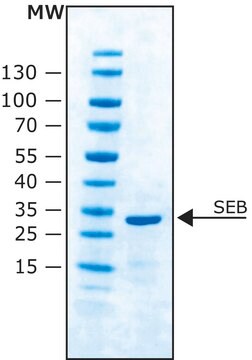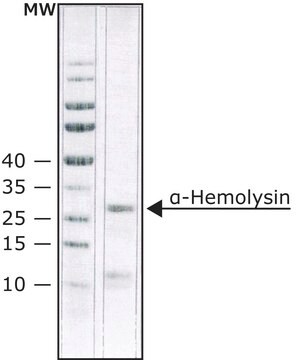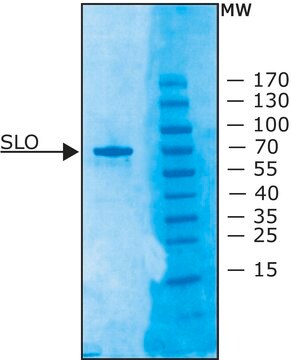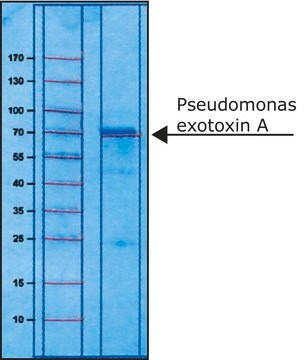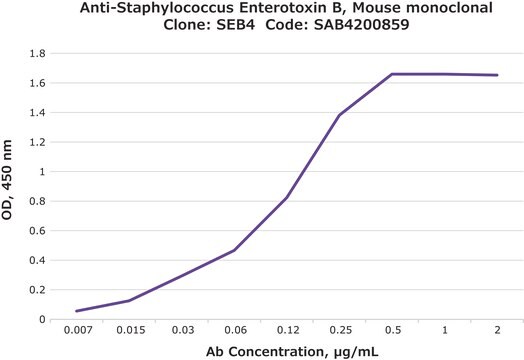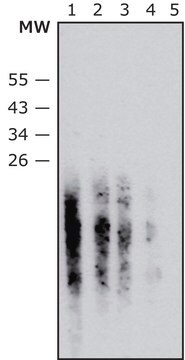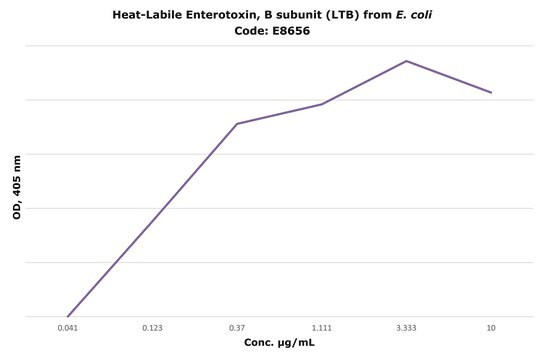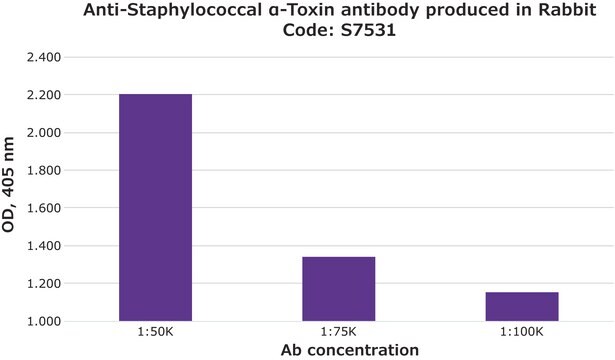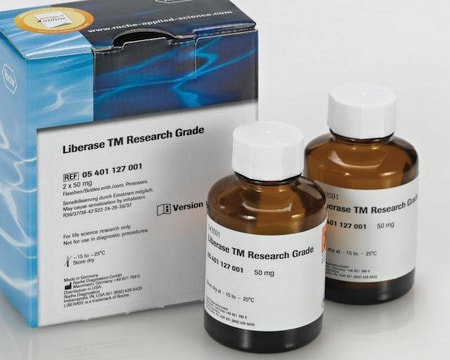T5662
Toxic shock syndrome toxin-1 from Staphylococcus aureus
Synonym(s):
Staphylococcal Enterotoxin F, TSST-1
Sign Into View Organizational & Contract Pricing
All Photos(1)
About This Item
Recommended Products
composition
Contains ~50% protein (Lowry); balance primarily sodium chloride and sodium phosphate buffer.
Quality Level
availability
not available in USA
solubility
H2O: soluble 0.50-0.60 mg/mL, clear to slightly hazy, colorless to faintly yellow
storage temp.
−20°C
Application
TSST-1 has been used for superantigen stimulation in T cells. Furthermore, studies have reported that TSST-1 can induce TNF-α secretion in peripheral blood mononuclear cells (PBMCs)4,5.
Biochem/physiol Actions
Superantigen for T-lymphocytes.
Preparation Note
Toxic shock syndrome toxin-1 (TSST-1) is soluble in water at 0.50 - 0.60 mg/ml and yields a clear to slightly hazy, colorless to faint yellow solution.
Signal Word
Danger
Hazard Statements
Precautionary Statements
Hazard Classifications
Acute Tox. 2 Dermal - Acute Tox. 2 Inhalation - Acute Tox. 2 Oral
Storage Class Code
6.1A - Combustible acute toxic Cat. 1 and 2 / very toxic hazardous materials
WGK
WGK 3
Flash Point(F)
Not applicable
Flash Point(C)
Not applicable
Choose from one of the most recent versions:
Already Own This Product?
Find documentation for the products that you have recently purchased in the Document Library.
L Blanco et al.
Infection and immunity, 58(9), 3020-3028 (1990-09-01)
Toxic shock syndrome toxin 1 (TSST-1), a 22-kilodalton protein made by strains of Staphylococcus aureus harboring the chromosomal toxin gene, may elicit toxic shock syndrome in humans. In vitro, TSST-1 induces T cells to proliferate and macrophages to secrete interleukin-1.
M Ramírez et al.
International immunology, 11(9), 1479-1489 (1999-08-28)
The superantigen toxic shock syndrome toxin (TSST)-1 can induce tumor necrosis factor (TNF)-alpha expression in T cells and monocytes, through different signaling pathways. We have stimulated peripheral blood mononuclear cells with TSST-1 and found that the major cell producers of
M Buxadé et al.
Immunology, 102(4), 416-425 (2001-05-01)
Tumour necrosis factor-alpha (TNF-alpha) is a proinflammatory cytokine produced by several cell types, including T cells upon antigen stimulation. Its production is crucial for the development of an early defence against many pathogens, but its beneficial effects are dependent on
Khojasteh V Javid et al.
Iranian journal of microbiology, 3(4), 170-176 (2012-04-25)
The aim of study was to develop a rapid assay, dye labelled monoclonal antibody assay (DLMAA), using non-radioactive organic synthetic dyes for identification of Toxic Shock Syndrome Toxin-1 (TSST-1) producing strains of Staphylococcus aureus. The assay protocol required only two
P Marrack et al.
Science (New York, N.Y.), 248(4956), 705-711 (1990-05-11)
Staphylococcal enterotoxins and a group of related proteins made by Streptococci cause food poisoning and shock in man and animals. These proteins share an ability to bind to human and mouse major histocompatibility complex proteins. The complex ligand so formed
Our team of scientists has experience in all areas of research including Life Science, Material Science, Chemical Synthesis, Chromatography, Analytical and many others.
Contact Technical Service